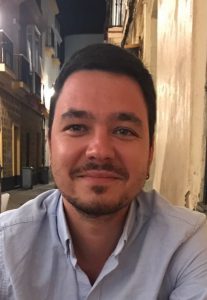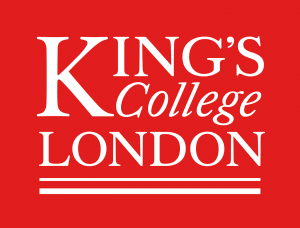I am currently working as a consultant at the World Health Organization in the Blindness and Deafness Prevention, Disability and Rehabilitation Unit. Even though I work in the field of disability and rehabilitation now, my background and training were in psychology. I completed my PhD in the Department of Psychiatry at the Autonomous University of Madrid, Spain, and before that completed my first Master’s in Work and Organizational Psychology at Sofia University, Bulgaria, and second research Master’s in Clinical and Developmental Psychopathology at the VU Amsterdam.
Ever since I started working at WHO, I was fascinated by the public health work my colleagues were undertaking. Early in the morning, the Emergency Medical Team would gather to discuss the latest data on emergencies from the monitoring systems across the globe. Important strategic meetings on a variety of topics such as tobacco control or AIDS and malaria prevention were held in the building, while guidelines, technical reports and policy documents on cancer, diabetes, hypertension were presented and launched. All this made me think how broad and immense the field of public health is. My work, mainly dedicated on the cross-cutting topic of disability, allowed me to collaborate with experts from different fields, and through this process, I realised how little I actually knew about public health. I was lacking knowledge on topics such as national health system governance, communicable disease management, and public policy.
I had two options – to start reading all documents and reports published by WHO in the last 5 to 10 years, or to get all this information synthesized through an academic program. As I was working full time in Geneva and had also sworn to myself after I finished my PhD that I would never again go to university as a student, my only available option was to look for an online program. I wasn’t very familiar with the online mode of education since it is mainly available in Anglo-Saxon countries, so I did my search using two criteria – the reputation of the University and program content. I was looking for a short and concise curriculum which would nonetheless touch on all important and relevant topics in public health.
After considering four online programs, I chose King’s because of three main reasons. First, it had the best reputation among all other institutions. I had the honour of previously working with Prof. Martin Prince and Dr. Matthew Prina from the Centre for Global Mental Health while I was part of the Marie Curie Maratone project three years ago, and I was also familiar with the work of Prof. Graham Thornicroft on the Emerald Project he was leading. The amount of expertise and knowledge that these people have is inspiring. Secondly, King’s provided the widest variety of topics. The other programs included too much epidemiology and statistics, which I had personally already covered in my previous studies and at work, and included very little or nothing at all in the curriculum on topics such as health promotion and infectious diseases. Finally, King’s provided the shortest time frame to finish a program – eight months for a postgraduate certificate.
Now, having finished the postgraduate course, I can honestly say that I am happy about my decision. The course was intensive, but easy to combine with my daily work. The program had a great online platform which was user-friendly and interactive. The modules provided the right amount of information to make you familiar with the topic, to explain the most relevant issues, mechanisms, and processes. The module on Health Protection, for example, taught us the principles of disease control, surveillance systems, immunisation and prevention, risk management and emergency preparedness, and also explored several communicable diseases such as malaria and tuberculosis in detail. Furthermore, the openness of the teaching team to feedback was something I personally found admirable. The teaching and administrative teams were always available and open to changes according to students’ needs. The most valuable feature of the program, however, was the expertise and competence of the teachers. It was great to see some of the most recognised and acknowledged professionals in the field providing the weekly material drawing, and also discussing the latest global updates from the field.
Taking stock of this experience, I definitely think that the program enabled me to fill many gaps in my knowledge, to think about health in a more structured way, and to take a more active role in my daily work and planning. I enjoyed absorbing the new material and I also furthered my knowledge on many different topics. In fact, I was already able to utilise the acquired knowledge and skillset at work. The Health Improvement module came just on time to help me apply some of the principles we learned into my work on the preparation of the World Report on Vision at WHO. However, what I am mostly grateful for, is the fact that this program helped me solidify my decision to continue my career in public health. Without wanting it promote clichés, I personally recommend the program to those who have interest in public health and want to pursue a career in the field, and also to those who have a genuine and non-career related interest in health to build their awareness and receive lifelong education.
Kaloyan Kamenov is a psychologist currently working at WHO HQ Department for Management of Noncommunicable Diseases, Disability, Violence and Injury Prevention. His work is focused on areas such as disability, rehabilitation, and prevention of blindness and deafness.


A really useful read for someone undertaking the same King’s course that you did.
Thank you.